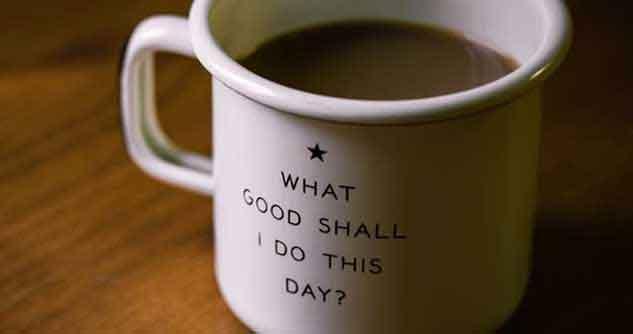Three out of four Americans drink coffee daily, making it one of the most popular beverages in the nation. The average coffee drinker reports drinking 3 to 5 cups of coffee each day with approximately 80 to 100 milligrams of caffeine per 8-ounce cup.
Caffeine is a powerful stimulant that can positively and negatively affect the body. With coffee an everyday staple in many people’s diets, questions about its health impacts can arise.
The Good, The Bad, and The Ugly of Caffeine
Whether from coffee or energy drinks, 56% of caffeine consumers believe its effects are beneficial. Anyone who relies on their morning Cup of Joe for an energy or mood boost can concur that drinking caffeine is good for them and the people they contact daily.
According to fitness experts at totalshape.com, the positives of caffeine consumption are primarily due to its ability to increase alertness and cognitive performance. Caffeine also has metabolic benefits and can help improve physical endurance during exercise.
Caffeine is also associated with several adverse health effects. Excessive caffeine consumption has been linked to increased anxiety, heart palpitations, insomnia, nausea, headaches, and restlessness.
How Much Caffeine Is Too Much?
There is no perfect amount of caffeine to consume to gain benefits without the side effects. The amount of caffeine appropriate for each person will vary with individual factors, such as sensitivity, medication use, weight, and overall health and lifestyle. In particular, pregnant or breastfeeding women must avoid or reduce their consumption.
The FDA reports that up to 400 milligrams of caffeine daily is safe for most adults. That’s equivalent to 4 cups of coffee daily.
Other Potential Downsides of Coffee
When it comes to coffee, caffeine is just one of many substances found in the cup. Coffee is also rich in antioxidants linked to several health benefits. But the quality of the brewing habits matters.
For example, some people brew their coffee using filtered water and quality coffee beans to maximize potential health benefits and minimize adverse effects. This reduces exposure to additives such as pesticide residue that can become concentrated during brewing.
Additionally, it’s essential to be mindful of add-ins. For example, dietician Brenna Thompson points out that the dairy and sugar in coffee could contribute to health problems, such as weight gain, joint pain, and chronic illness.
Who Would Benefit from Drinking Less Coffee?
Although the effects of moderate caffeine consumption are generally harmless, specific demographics may benefit from reducing their intake. These include:
Pregnant or breastfeeding women
Anyone with heart health concerns
Children under the age of 18
Individuals with caffeine sensitivity, experiencing the onset of nausea, anxiety, shaking, trouble concentrating, etc.
People with anxiety or panic disorders
Anyone that takes medications for depression, headaches, and other neurological problems.
Discussing concerns about coffee consumption with a doctor is always the best course to follow.
Cut Back When Something Feels Wrong
In addition to the list above, any vague symptoms that have you feeling off might make ditching coffee worth considering.
Avid coffee drinker Majorlein Dilven shares her story: “I actually quit caffeine completely when I worked my 9-5, as I was getting anxious, couldn’t sleep well, and was overly stressed. It wasn’t good for my mental and physical health at that point. When a fun night out turned into another sleepless night just because I had a cup of coffee at 8 p.m., I decided to quit cold turkey.” After her body overcame the shock of ditching coffee, she explained, “It’s more of a balance now, and I’m happy that I’m not depending on coffee to get me up in the morning.”
Eric, another coffee user, shares, ” During [the] time that I was drinking coffee, I was at the point of taking 8 Tums a day many days [for heartburn]. Taking that much heartburn medication has its own risks and potential side effects, so my doctor told me that if I stop drinking coffee, it might lessen my heartburn and reduce the amount of heartburn medication I needed.” After reducing his intake, he happily reports taking significantly fewer drugs each day due to discomfort with heartburn.
How to Find the Right Balance
Caffeine is the world’s most commonly used psychoactive drug, and coffee is its primary source. At the end of the day, it’s ultimately up to consumers to decide whether daily coffee consumption suits their lifestyle. When in doubt, assessing physical and mental responses to drinking coffee is a good practice. Coffee drinkers can do so via daily journaling or setting an alarm for daily check-ins on how they are feeling.
Symptoms to watch for include:
Heart rate and blood pressure
Poor sleep habits or insomnia
Changes in mental clarity due to anxiety, stress, or fear
Gastrointestinal symptoms
Heartburn
Excessive cravings for coffee that disrupt daily life
Changes in mood or a negative mindset
Overall energy throughout the day
If a coffee consumer notices adverse effects, it might be worth reducing or even eliminating caffeine intake. Typically, the best way to accomplish this is a gradual step-down.
At the same time, it’s essential to recognize that coffee has been linked to several health benefits and should not be avoided indiscriminately. If a habitual coffee drinker believes a daily coffee fix is beneficial, there are several ways to mitigate the risks of caffeine consumption. These include drinking coffee in moderation, using quality beans and filtered water, and avoiding excessive additives such as sugar and dairy
Whatever decision is made, the key is finding an effective balance. With careful monitoring and thoughtful consideration, habitual coffee drinkers can enjoy the benefits of coffee without compromising overall health.
